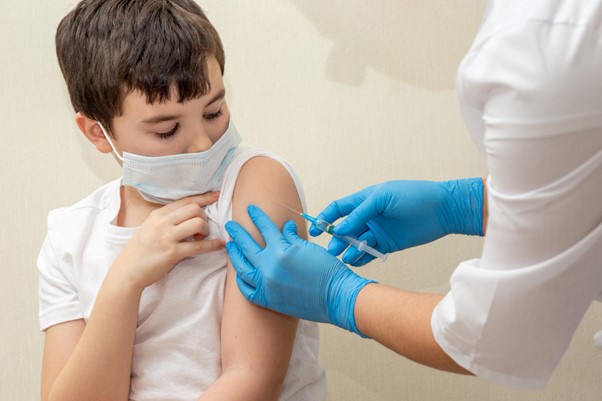Introduction to Vaccinations in Children
Vaccinations in children are a key part of keeping kids healthy. Vaccines help protect children from serious diseases. They also stop the spread of illnesses in the community. For this reason, doctors and health experts recommend childhood immunization for all children. Vaccines are safe, effective, and save lives. In this blog, you will learn why vaccinations in children matter and how they work.
Why Childhood Vaccinations Matter
First, vaccines protect each child from dangerous diseases. For example, they prevent illnesses like measles, mumps, and polio. In addition, when most children get vaccinated, diseases cannot spread easily. This helps protect babies, older adults, and people with weak immune systems. According to the World Health Organization (WHO), vaccines prevent millions of deaths every year. So, childhood vaccinations are important for both personal and public health.
Common Vaccines Recommended for Children
Doctors follow a childhood immunization schedule to keep kids safe. The Centers for Disease Control and Prevention (CDC) recommends several vaccines for children. Some common vaccines include:Measles, Mumps, and Rubella (MMR)Diphtheria, Tetanus, and Pertussis (DTaP)Polio (IPV)Hepatitis BHaemophilus influenzae type b (Hib)Chickenpox (Varicella)Pneumococcal (PCV13)RotavirusInfluenza (yearly flu shot)
Each vaccine protects against a specific disease. Following the recommended schedule gives the best protection.
How Vaccines Work
Vaccines help the body build a defense against germs. When a child gets a vaccine, it teaches the immune system to fight the disease. As a result, if the child is exposed to the real germ later, the body knows how to protect itself. This process is safe and does not cause the disease itself. Instead, it helps the body get ready to fight off infections.
Safety and Side Effects of Childhood Vaccines
Many parents worry about vaccine safety for kids. However, vaccines go through many tests before doctors use them. Health experts like the CDC and WHO check vaccines for safety and quality. Most side effects are mild and go away quickly. For example, a child may have a sore arm or a mild fever. Serious side effects are very rare. If you have concerns, talk to your doctor for more information.
Addressing Common Myths and Concerns
Some people worry that vaccines cause autism or other health problems. However, many studies show that vaccines do not cause autism. In fact, vaccines are among the safest ways to protect children. Also, skipping vaccines can put your child and others at risk. If you hear something about vaccines that worries you, ask your doctor or check trusted sources like the CDC or WHO.
Guidance for Parents: Schedules, Tips, and Where to Get Vaccinated
It is important to follow the childhood immunization schedule. This schedule tells you when your child needs each vaccine. You can get a copy from your doctor or the CDC website. Here are some tips for parents:Keep a record of your child’s vaccinesAsk your doctor about any missed shotsBring your child’s vaccine record to each visitComfort your child during and after shots
You can get your child vaccinated at your doctor’s office, health clinics, or local health departments. Some schools and pharmacies also offer vaccines for children.
Prevention and Community Benefits
Vaccinating your child helps protect your family and your community. When many people get vaccinated, diseases cannot spread easily. This is called herd immunity. Because of herd immunity, even people who cannot get vaccines are protected. For example, babies who are too young for some shots stay safer when others are vaccinated. So, the benefits of vaccinating children go beyond your own family.
Conclusion
In summary, vaccinations in children are safe, effective, and vital for good health. They protect your child and help stop the spread of diseases. For the best results, follow the childhood immunization schedule and talk to your doctor about any concerns. Consult your pediatrician for personalized vaccination advice.

